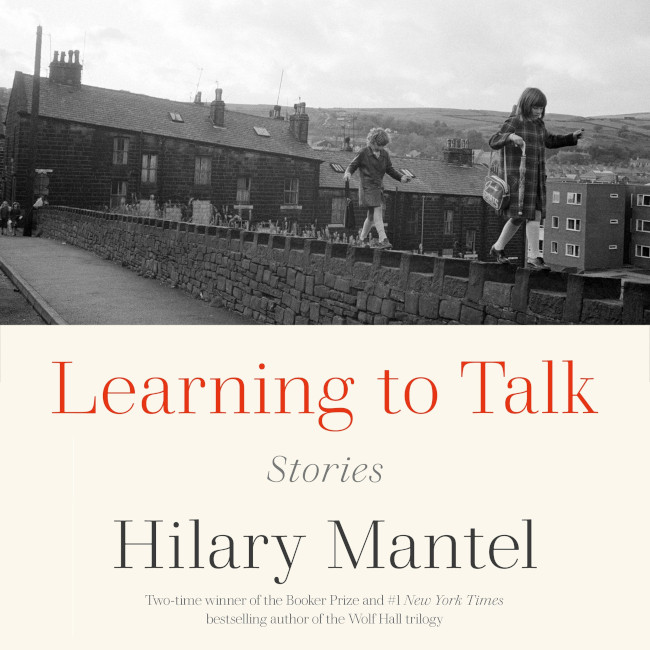In ‘Learning to Talk,’ Hilary Mantel Conjures a Troubled Childhood

Learning to Talk: Stories
by Hilary Mantel
Henry Holt
157 pages
Let’s be clear right from the start: Hilary Mantel’s Wolf Hall trilogy stands at the apex of historical fiction in the 21st century. Somehow Mantel contrived to break (or reinvent) the code for this genre, transforming the hoary conventions of novels set during the reign of King Henry VIII into narratives with a contemporary point of view superbly suited to our latter-day sensibilities.
So successful is this behemoth work that one reads The Mirror & the Light (the last novel in the series, coming in at a mere 700 pages) with the same page-turning fervor as Wolf Hall, and its successor, Bring Down the Bodies. The trilogy’s protagonist, Thomas Cromwell, is as fully rendered as any fictional character in modern times, and these epic works are wonderful to read from first page to last.
Mantel’s new story collection, Learning to Talk (published here for the first time, originally in the UK in 2013) has a much narrower focus—that is, a troubled Catholic childhood in and around the village of Derbyshire in the North of England in the late 1950s and early 1960s. The seven stories are all told in a first-person (mostly female) voice of an adult looking back on pivotal moments in childhood, set against an industrial urban backdrop and within the world of a highly unorthodox nuclear family.
All the stories here are closely observed, showcasing the author’s exemplary skill at painting secondary characters with a simple literary flourish: “Myra was little, she was mere, rat-faced and meager, like a nameless cut in a butcher’s window in a demolition area.”

Also, Mantel reliably locates the right sensory details to evoke a childhood disrupted by arcane family dynamics and the ambition to escape provincial life in the North of England. Of her early days at school:
“But it is not spring that I remember: rather those days when the lights were on by eleven o’clock, and wet roofs and the mill chimneys shivered behind a curtain of water. At four o’clock the daylight would almost have vanished, sucked away into the dark sky; our wellingtons squelched in the mud and dead leaves, and breath hung like disaster in the raw air.”
In several stories, irksome male interlopers appear—ominous figures who aren’t the young girl’s father, nor her mother’s husband. In virtually all cases, they are viewed as peripheral in the narrator’s life, mercurial figures whom her mother has latched onto, in the hopes of a more comfortable life, but who dominate the household in unwholesome ways:
“Jack had come to stay with us. At first he was just a visitor and then without transition he seemed to be always there. He never carried in a bag, or unpacked clothes; he just came complete as he was. After his day’s work he would drive up in the evil car, and when he came up the steps and through the front door, my father would melt away to his shadowy evening pursuits. Jack had sunburned skin and muscles beneath his shirt. He was your definition of a man, if a man was what caused alarm and shattered the peace.”

It's the narrator’s father melting away “to his shadowy evening pursuits” that lends the scene its rich poignancy.
Some of the work in Learning to Talk feels less like stories, more like exquisitely depicted memory pieces. But in the strongest stories (“King Billy is a Gentleman,” “Third Floor Rising,” and the title story), Mantel generates suspense out of the most unlikely encounters, and fuels a reader’s desire to see the young protagonist move out of her troubled home and into a brighter future.
A far cry from the world of Wolf Hall, this story collection offers further proof that Hilary Mantel is among the most gifted and accomplished writers of our time.
Author Bio:
Lee Polevoi, Highbrow Magazine’s chief book critic, is the author of The Moon in Deep Winter. His new novel, The Confessions of Gabriel Ash, is forthcoming in 2023.
For Highbrow Magazine
Image Sources:
--Anna Shvets (Pexels, Creative Commons)
--Pexels (Creative Commons)
--Macmillan (Henry Holt)































































































































































































































































































































